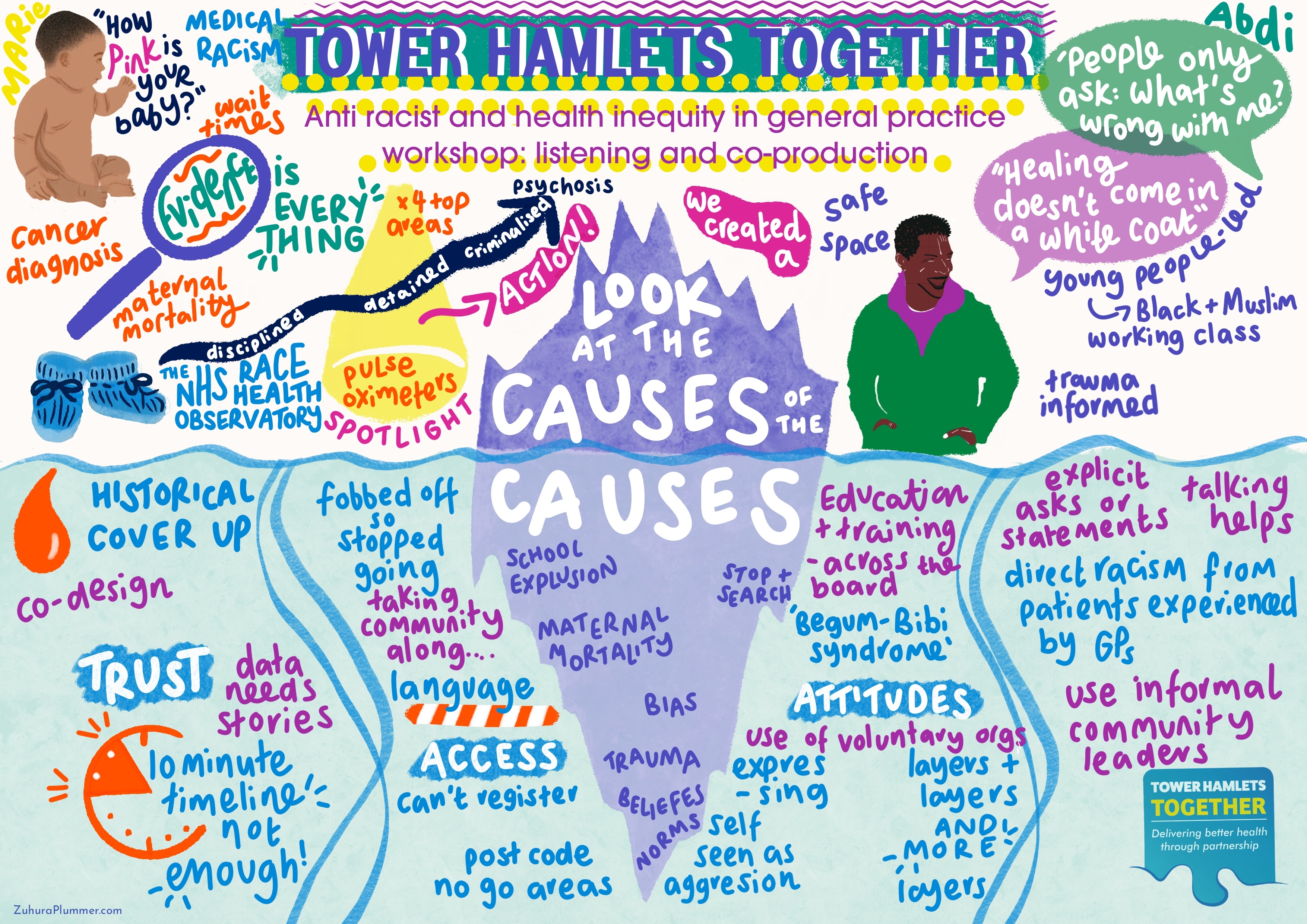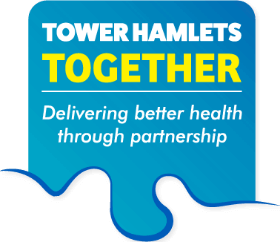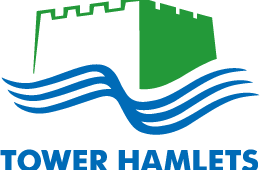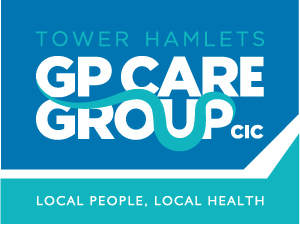Dr Farah Bede clinical lead and co chair of the Tower Hamlets Together Anti Racism and Health Equity steering group hosted the THT partnership’s inaugural Anti Racist and Health Equity in General Practice; A Listening and Coproduction workshop on Thursday 12th June 2025 at Toynbee Hall.
- Home >
- Anti-racist and Health Equity Workshop Event June 2025
The event was well attended and sought to bring together general practice and the community to look at the racial health gap with 60 delegates booking weeks in advance. The Workshop had a keynote speech from Dame Marie Gabriel current chair of the NEL ICS and NHS Race and Health Observatory, with a plenary presentation from community organisation Coffee Afrik and listening & co production sessions facilitated by Equip the local Quality Improvement team.
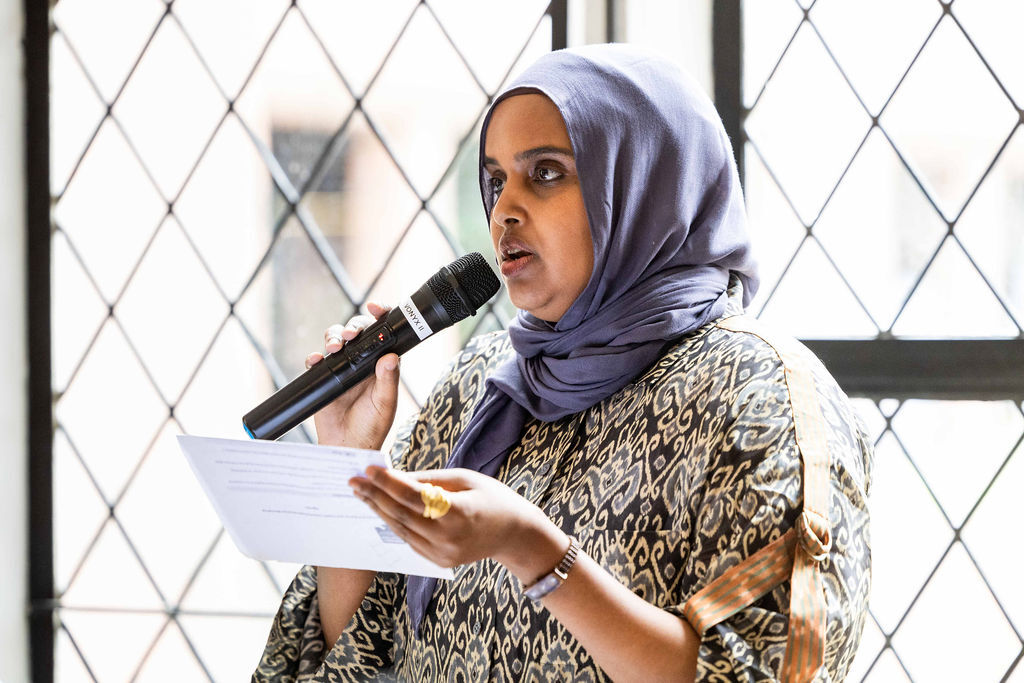
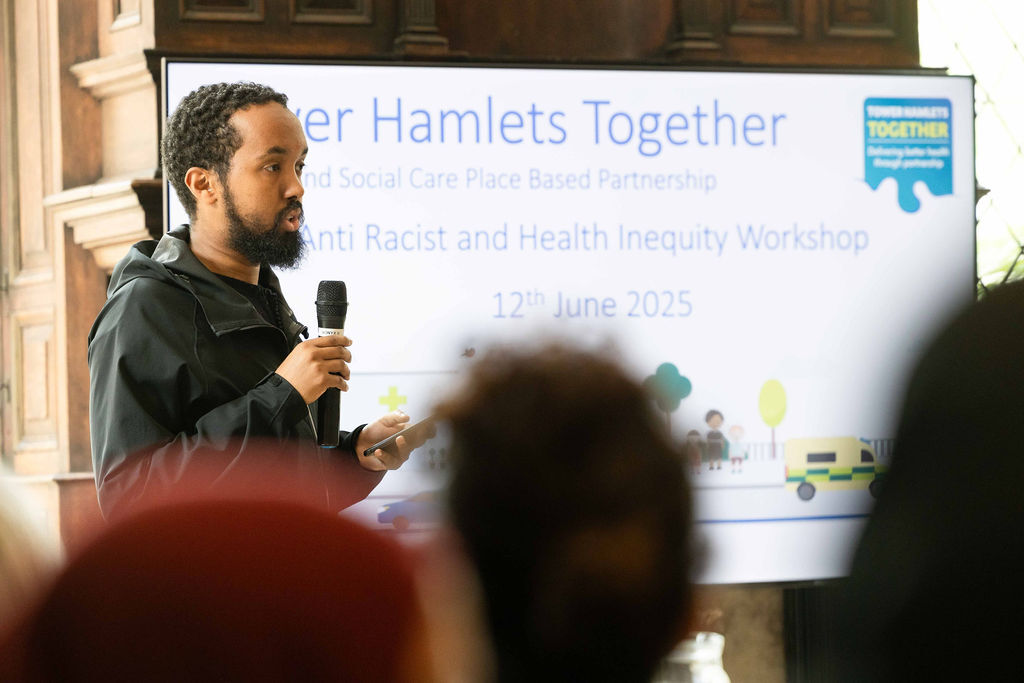
This is the first of 2 workshops looking in close detail at ethnic health disparities and the resultant racial health gap which has been known about for a long time, and seeks to understand the ‘causes of the causes’ to unlock the solutions for change using listening and co production approaches to build healing, relationships and grounded in restorative healthcare practice. Anti Racism is one of the 7 key priorities set by the THT Executive Board.
We endeavour to address the racial health gap firstly at the front door of the where most patients start with their health journey. 90% of patient contact occurs in primary care but we also know 85% of healthcare outcomes are from the conditions we live and work in namely the social determinants of health.
Dr Bede said on the day “We are here to frame racism as a public health emergency. I’m of Somali background, and have living experience of racial prejudice and misogyny as I am racialised as a black woman in society. As a GP I see and hear the pain of those suffering every day for the last 15 years of working in the UK. Today we are here to look at the causes of the causes of long-standing ethnic disparities in the effort to eliminate the racial health gap’.
Dame Marie Gabriel pressed the urgency of addressing racism. Data from Professor David Williams from the USA illustrates 200 people die every day due to racism. Which is comparable to a bus load of people dying every day. She went on to discuss the work the North-East London Integrated Care System have done to develop an anti-racism strategy published in January 2025, and work the NHS Race and Health Observatory have done in launching the 7 anti-racist principles for healthcare see below. Khaleel Muhammed the Youth Justice Lead at Coffee Afrik concluded the plenary sessions by presenting ground breaking projects he has been involved in to empower the youth, break down generational trauma and address the social determinants of health.
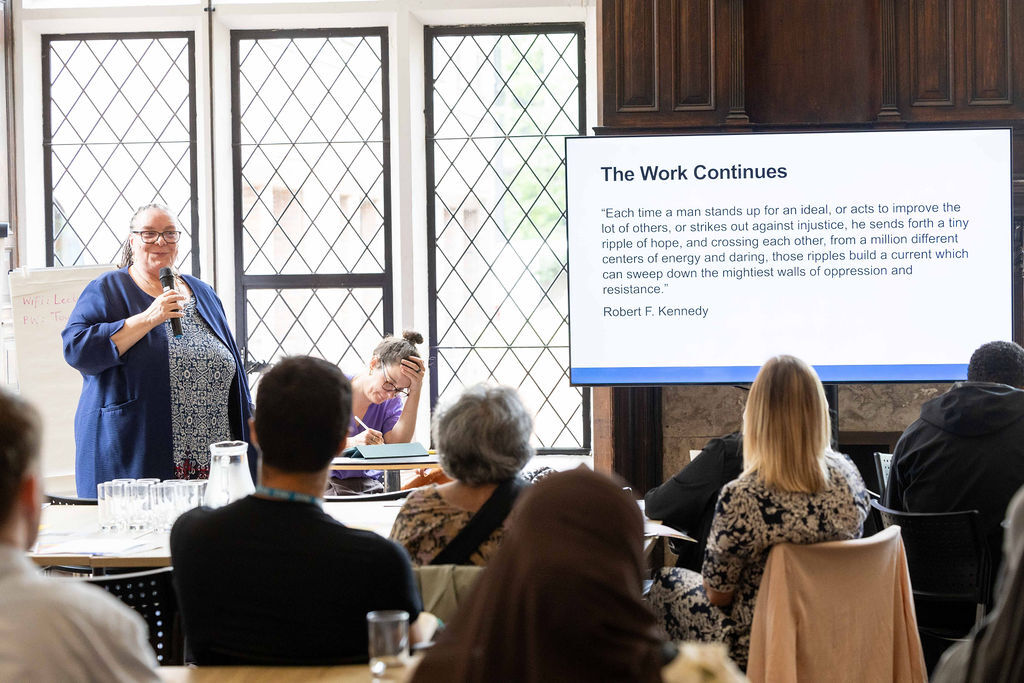
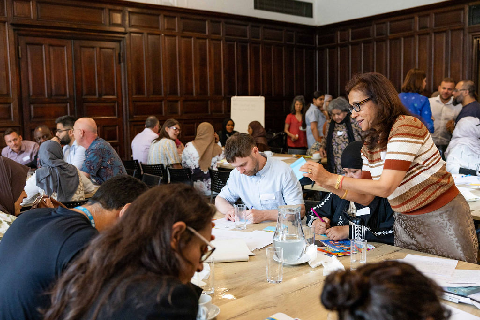
This marked the start of the facilitated listening and co production sessions where 6 tables of community organisation leads, members and residents sat round table style with primary care leaders from across general practice in clinical leaders from NEL ICS, GP care group, Primary Care Network and GP clinical directors and partners.
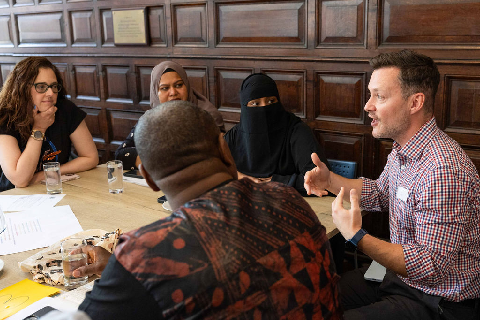
The THT Anti Racism and Health Equity board’s foundational year has been a journey of discovery. Dr Bede has been researching and developing interventions such as a general practice anti racism framework to help prioritise areas to help shape health promotion, prevention and personalisation using an anti-racist accreditation system.
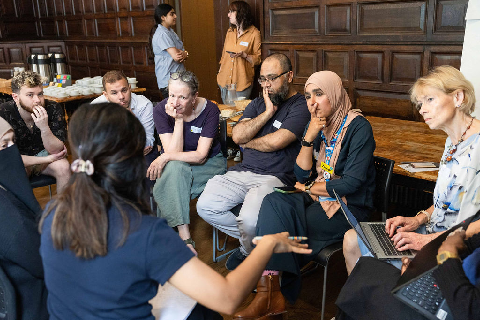
The aims and objectives of the session (4 hour session) were to:
- Name Racism and specifically Medical Racism in the context of Primary Care – and develop a shared understanding of our established definition of Medical Racism – and acknowledge the harm it has caused on the lives of residents.
- Understand NHS North East London and Tower Hamlets Together’s Anti Racism
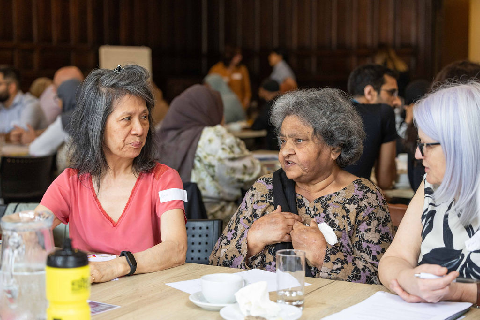
- Listen and hear from people who have been impacted by Medical Racism in Tower Hamlets, using restorative justice techniques with the intention of setting the foundations of working together building tangible and practical change and action.
- Building trust, buy in and connection into this work from leaders in Primary Care and community organisations to co-design and co-produce tangible and practical change.
- Accountability for the outputs of the workshop and ensuring delivery of action, how to measure and track progress. Using QI methodology to think about solutions and measuring improvements will help with accountability framework.
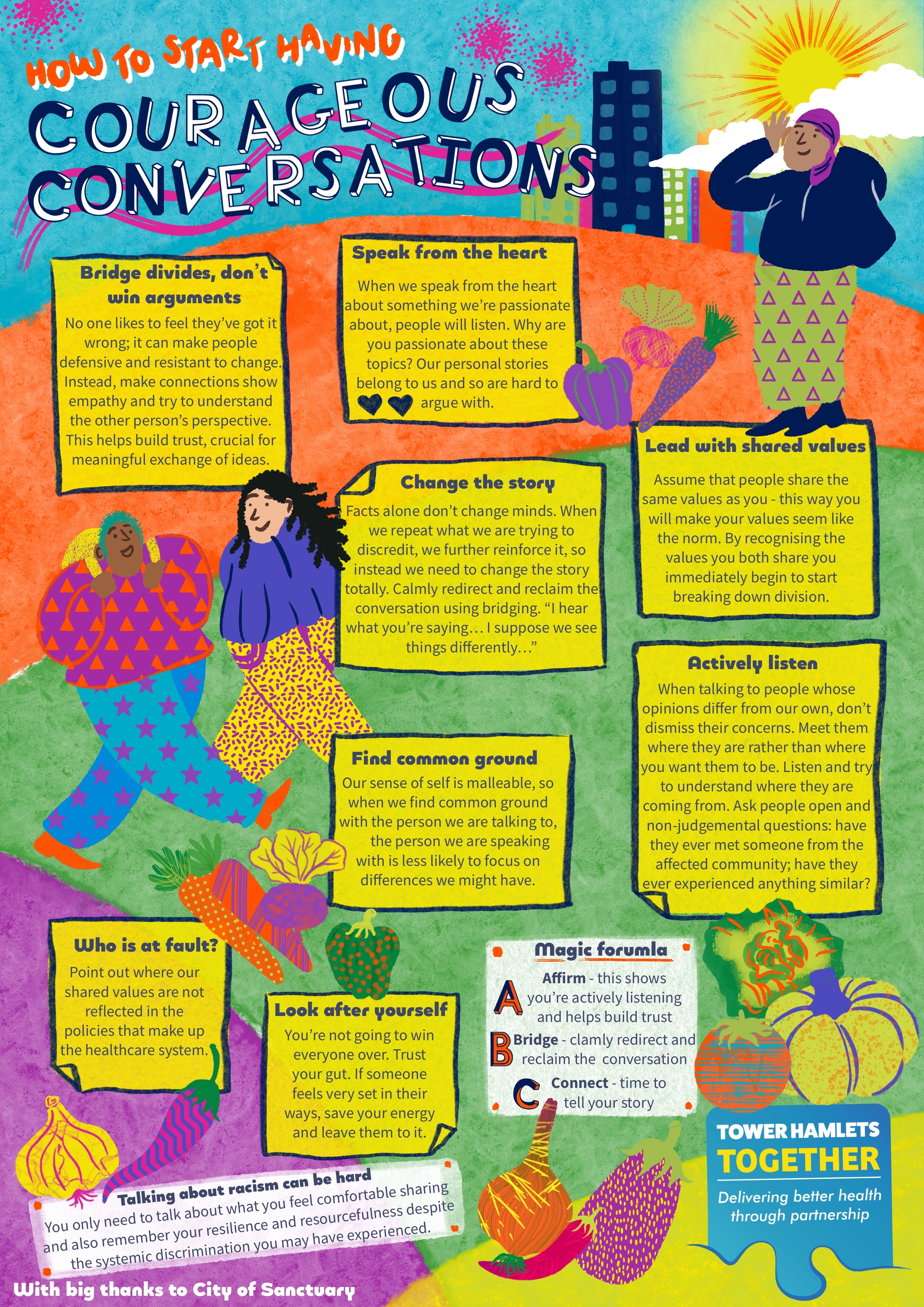
The group commissioned a ‘how to start having courageous conservation guide’ to help participants..
The event concluded with ideas and themes that were captured through a live art rendering by a visual illustrator..
